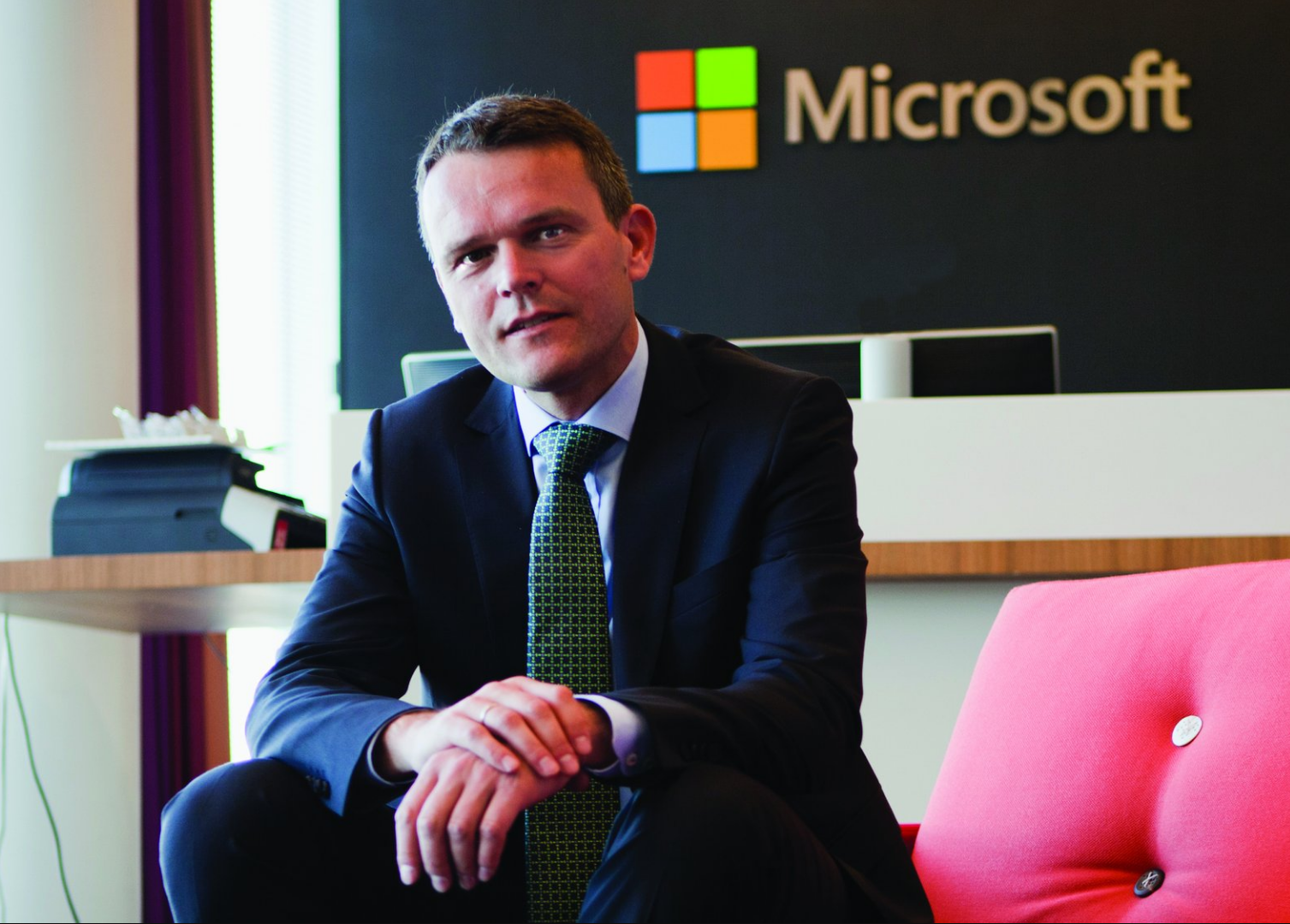Q&A with Stijn Nauwelaerts, Microsoft: Becoming a digital workplace
- 5 Min Read
Stijn Nauwelaerts, HR General Manager at Microsoft joined HRD Connect to discuss the digital workplace, and future demands of HR. How can HR Leaders adapt and innovate to meet future demands? What skills and knowledge are needed for HR Leaders to navigate the changing business landscape? We are in the midst of the changing world […]
- Author: Rachel Montgomery-Young
- Date published: Apr 24, 2017
- Categories

Stijn Nauwelaerts, HR General Manager at Microsoft joined HRD Connect to discuss the digital workplace, and future demands of HR.
How can HR Leaders adapt and innovate to meet future demands? What skills and knowledge are needed for HR Leaders to navigate the changing business landscape?
We are in the midst of the changing world of work. To site some facts:
- Millennials represent one of the largest generations in history and are predominating the working world, currently representing half of the workforce
- 4x people work remotely as a decade ago
- 90% of the world’s data was generated only in the past 2 years
- By 2020 it is estimated that there will be 40 million shortage of high-skilled workers
These changes pose a tough balancing act for Human Resource leaders. The business expects HR to compete for talent around the world. It wants HR to better support business objectives. And it needs HR to inspire and manage employees in ways that create value both for the employees and the company. Employees want more as well. They’d like a more transparent candidate experience. They want help finding the right training so their careers grow. And they want to track their benefits and other records themselves, anywhere and on any device. In order to meet these future demands HR needs to help create a workplace that foster these needs. Through work flexibility, diversifying the talent pool and within a motivational context. Creating a corporate culture that understands and values these changes is also integral.
Technology is changing the way we do business from automating processes to giving us greater access to real-time information. How important is it for organisations to be invested in becoming a digital-first business?
Creating a ‘Digital Workplace’ is key to remaining competitive in the future. Digital transformation starts with employees as they can change how they work and influence the business. It increases employee engagement, skills and satisfaction by helping employees connect easily with customers, co-workers and partners. Having the right technology to enable digital transformation goes without saying, as it is the technological platform that will help employees bring it to life. Surveys show employees in a Digital Workplace are more responsive to customers. They’re more innovative, finding new ways to perform work and developing new products and services. They make the business run better. And they’re simply happier in their jobs.
Which technological advancements do you think are making the biggest impact on the way we work?
In order to navigate your business towards digitalization it is important to develop a digital workplace vision, develop digital workplace scenarios and work with highly trained experts to find the right solutions for your organization and have them implemented. Modern communication, collaboration and data-driven technological offerings can have the biggest impact in transforming your employees and workplace. These offering are all available in the Cloud and can help accelerate your businesses time to value.
What role does HR play in getting an organisation digitally ready for the future?
HR must transform themselves as a function in order to help the business. Ways to do this are finding new ways to use data and technology, creating ways to perform key tasks with excellence and effectiveness and investing in people to create a stronger HR organization.
The HR Director Summit/Europe themed Enhancing Business Performance: Turning Strategy into Reality. Where can HR make the biggest difference in your organisation? What is HR’s role in enhancing business performance?
HR can play a large role in the organization by attracting, retaining, and engaging a new generation of employees to drive your organization forward. They can also play a role in evaluating the current organizational environment, defining people processes and help landing culture. Collectively HR and the business should brainstorm a roadmap for human capital transformation, which is a key to enabling culture change, digitalizing a workplace and implementing it towards solutions.
Ways you can help change an organizations culture is by having a CEO that is authentic and has a purpose-driven mission, the change needs to honor the past and define the future of the organization and be simple, yet strategic. Communication, measuring success and being open to employee feedback by ensuring there are listening systems in place to pulse check how change is landing, is key. External feedback through customers and partners is another way to measure progress. Lastly, you must have an all in approach and stay the course in order to truly make a difference and enhance business performance. Change is hard and the work is challenging, but the opportunities for HR are so exciting.
Stijn will join speakers including Dr. Reza Moussavian, SVP HR Division “Digital & Innovation” at Deutsche Telekom and Andre de Wit, VP Capability Building and Learning at Carlsberg, at HRD Summit/Europe on 30 – 31 May 2017.
Find out more about the event in Amsterdam and join us by visiting the HRD Summit Europe









